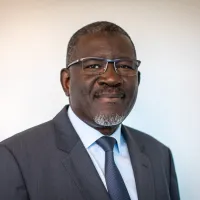Insight: Participation, Rights & Inclusion in Africa and the IIAG results
13 June, 2023
Inclusivity, representation and the protection of political rights are at the heart of democracy – when absent, governments cannot take informed decisions nor be held accountable for delivering on the aspirations and expectations of their citizens. The notion of participatory democracy is enshrined in the Universal Charter of Human Rights, which asserts that "everyone has the right to take part in the government of his country, directly or through freely chosen representatives."
Since the democratic expansion in Africa of the early 1990s, we have seen significant progress in the establishment of multiparty democracy and the entrenchment of democratic values. The result has been heightened legitimacy, more stability, faster socio-economic development and an increase in the frequency and quality of elections. True, many obstacles to genuine political participation remain, including legal clauses which can restrict full political rights to certain groups; or the economic burden of participation which can limit access to those with means. Yet for many years that trend was positive.
However, the findings of the 2022 Index Report are worrying. The inclusiveness of democracies across Africa is in retreat and at the same time, improvements in good governance have stalled. There is some good news: the majority of Africans today live in countries where overall governance has improved between 2012 and 2021, delivering increased opportunities for economic growth, development, and human health. However, progress has recently stalled, coinciding with the COVID-19 pandemic.
More than half of Africans now live in a country where indicators of Participation, Rights, & Inclusion have declined in the last ten years, and more than one-third live in a country where this decline has accelerated since 2017.
Participation, Rights & Inclusion sub-categories
Participation, Rights, Inclusion & Equality, and Women’s Equality – three of these four sub-categories have deteriorated both over the whole decade and since 2017. Participation is in fact the sub-category with the most significant decline between 2017 and 2021 in the entire IIAG, driven mostly by pandemic-related restrictions on Freedom of Association & Assembly and Democratic Elections.
Restricting in-person gatherings was an almost universal response to the pandemic as governments sought to reduce opportunities for viral transmission. In a similar vein, many elections – the pre-eminent opportunity for political participation – were cancelled or postponed. As a result, the freeness and fairness of elections have declined, the space for civil society has shrunk, and political pluralism is weakening.
Beyond the pandemic, the report spotlights the decline of key democratic freedoms in the months building up to elections in several African countries.
Elections provide a moment for citizens to come together to debate and decide who will lead them, and for what purpose, and to renew their commitment to the democratic ideal.
~Kofi Annan
It is particularly concerning that the periods leading to elections should instead be a time of increased restrictions on media freedom, digital rights, and freedom of expression.
The correlation between freedom of assembly, democratic elections and overall governance is evident. One of the clearest findings of the 2022 IIAG is that if we wish to see significant improvement in overall governance – with all the associated socio-economic and political benefits – concerted efforts must be made to increase levels of inclusivity, participation and the protection of fundamental political rights.
Of the four underlying sub-categories for Participation, Rights & Inclusion, Women’s Equality is the only one to register progress, with 42 African countries measuring higher levels of equality. Yet even here major barriers to full participation remain, including significant levels of violence against women and lack of socio-economic opportunities.
Kofi Annan also remarked that:
The will of the people must be the basis of governmental authority. That is the foundation of democracy. That is the foundation of good governance.
The findings of the 2022 IIAG validate his thesis and give us a clear roadmap going forward. To see inclusive governance and socio-economic growth flourish across the continent requires that we devote serious political will, attention and resources to expanding the role of the people in all aspects of governance. Only then can we deliver on both the promise of Africa and the aspirations of its peoples.



